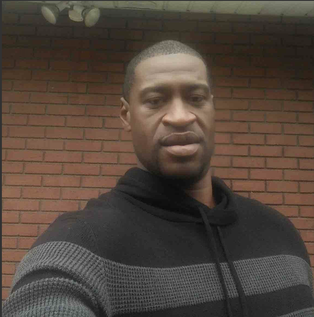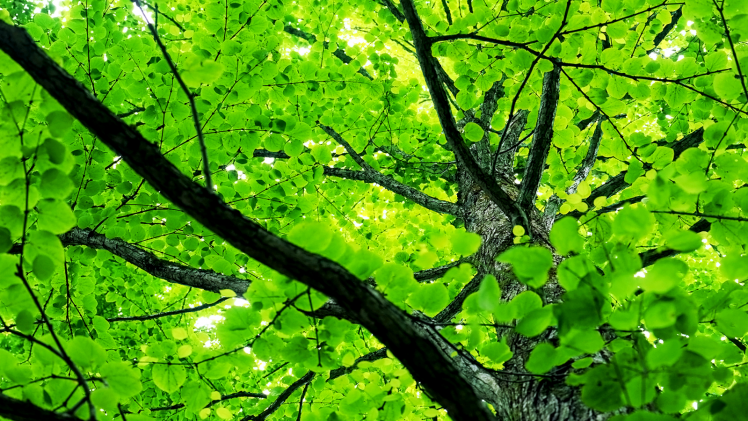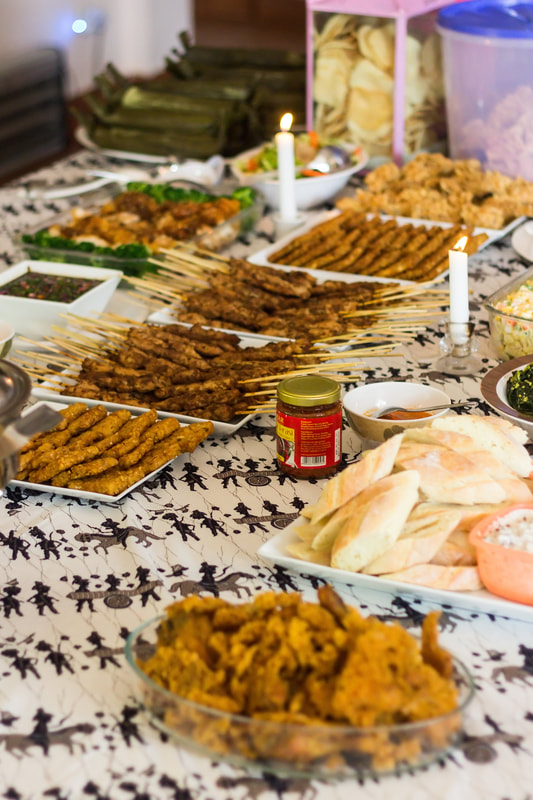|
Voices for Earth Justice is a faith-based environmental justice organization. We are on a mission to help more people of faith make more good change for Creation.
What does that have to do with George Floyd? A lot. It is easy to think of racism as a personal problem. And it is. But so much more than that, racism is a spirit, a system, a "way things are" in the world. My fingers started to type that racism is hidden in the system. But that is not so. For those who get the most good out of the system, racism is indeed hidden from them. When the system is working for you, you cannot, or will not, see the racism in the system. I am an affluent white evangelical male. People who look like me built our system over hundreds of years with one goal: Make sure that people like us always get the "long end of the stick." Even if the "stick" itself gets longer, the system makes sure that people like me get the longest part of that longer stick. As a son of the people who built the system, I inherited the benefits that system set up for people like me. And since I inherited them, I take them as givens. And, since I take them as givens, I assume they are givens for everyone else, too. But to people of color, most of all black males, racism is not hidden in the system; it is in their faces and on their backs all day, every day. Sometimes, the racism in the system comes at them with bars, billy clubs, and bullets. Or knees on their necks. This week, those of us who are blind to the racism in the system saw a flash so bright that it opened our eyes and showed us what we could not (or would not) see. Now, we have to two choices to make:
As the leader of Voices for Earth Justice, I'm asking you to say "yes" to both questions. Commit yourself to seek understanding and to take action with us. But you may wonder: What does any of this have to do with environmental justice? If VEJ's mission is "prayer, education, and action for Earth," isn't it "mission creep" to talk about racism? No. Environmental in-justice is another form of racism in the system. Who lives closest to air, soil, and water pollution? In the United States, it is most often people of color. Why? Two reasons:
Affordable housing First, people of color bear the burden of chronic poverty that is the legacy of laws set up to keep them poor and powerless. The system is set up to keep people of color from building the personal assets and generational wealth that many white people enjoy. While many white people are able to overcome setbacks through access to capital, education, family wealth, or professional networks, people of color often have no such safety net. This is the legacy of slavery, Jim Crow, mandatory sentencing, redlining, subprime lending, disinvestment in public schools, and other legal forms of racism. So people of color often have to work harder than white people. Even then, they earn less money. The setbacks of life that merely slow upward mobility for whites often keep people of color in the hole for a generation or more. This is why people of color struggle with chronic poverty more than white people do. One of the biggest problems that people of color face every day is finding safe, decent, affordable housing. If you think that is an easy problem to solve, you are probably white. Educate yourself: Go to the National Low Income Housing Coalition website and click on the "Housing Needs by State" tab, then scroll down to Michigan. You will see that here in our state, we have a shortage of 189,905 affordable rental units available to low income households (which, in our state, are disproportionately black). What does that mean? People who are low-income (which, in our state, usually means people of color), cannot find affordable housing because there is not enough of it! In many cases, the only affordable housing that people of color can find is housing that is next to environmental hazards (like an oil refinery) or housing that is itself an environmental hazard (think lead paint and pipes). Political power The lack of affordable housing and the lack of economic opportunities and resources force poor people of color to live close to environmental hazards. Sometimes, however, the environmental hazard moves closer to people of color. What happens when someone wants to build something that will be an environmental hazard and a risk to the people who live nearby? Communities that have the most influence, money, and power use those things to keep it out. Those communities are almost always white. Meanwhile communities of color often don't have the influence, money, and power to keep environmental hazards out. White money and power from the outside can force the environmental hazard into the community of color. So, then, injustice against the environment often involves injustice against people of color. Pollution harms air, soil, and water, but also harms the people who have to live with it. COVID-19 is a case study. You can see the correlation between the disproportionately high death rate among black Americans and the level of air pollution in areas where black Americans live. So, what does all of this teach us? It teaches us that when we abuse, exploit, and pollute the environment, we abuse, exploit, and pollute people, too. If we are willing to be so careless, and even cruel, toward Earth (our one and only home), then being careless and cruel toward human beings is not out of the question. One feeds the other. So, then, suffocating people of color with air pollution and suffocating them under a police officer's knee are two sides of the same coin. They are both part of the same system. A system that is racist. And that is why George Floyd's death is an environmental justice issue. When we speak and take action for environmental justice, we are going after the same system that led to George Floyd's murder. We are voices for Earth justice. Let us keep praying, learning, and taking action together to change the system for the good of Earth...for the good of all. Let us work with all our might to make sure nobody will ever again say: "I can't breathe." Grace and peace, BT Irwin, primus inter pares Voices for Earth Justice
1 Comment
Wonder Walks, one of the popular new programs VEJ launched in 2019, will return this summer (as soon as it is safe for groups of 12 - 24 to gather outdoors).
The program takes participants to some of southeast Michigan's natural wonders and blends the experience of going on a guided nature walk with the experience of a guided spiritual retreat. "Wonder Walks are a beautiful mix of the first two parts of our mission: Prayer and education," said VEJ executive director BT Irwin. "They get something for their bodies, hearts, and minds all at the same time. Plus, they explore a lot of new places and make a lot of new friends." Irwin said VEJ is waiting for the State of Michigan to release new guidelines for groups of more than ten to gather in outdoor spaces. Once those guidelines are set and VEJ finalizes plans for the safety of its guests, Wonder Walks will start up quickly. "We expect to be hosting Wonder Walks this summer," said Irwin. "And I think people will be ready for them." The 2020 Wonder Walks calendar that was not released (because of COVID-19), included the following locations:
"We'll likely visit most of the locations we planned to visit this year," said Irwin. "We have to work with our guides to make the new schedule. We're hoping to have that no later than the start of June." In 2019, Community Dinners at Hope House & Gardens were one of VEJ's most popular programs. On the first Sunday of each month, guests gathered in the backyard to enjoy food made by a local chef and a presentation by an Earth justice expert.
The program was set to return in 2020 until COVID-19 make it unwise to host groups of people in close contact for the foreseeable future. But using technology, VEJ is launching Sunday Dinners, a virtual dinner party program similar to Community Dinners, this June. "COVID-19 is not an excuse to stop our work," said VEJ executive director BT Irwin. "In fact, it's a challenge to us to find ways to do more. After all, the pandemic only makes it more clear that Earth justice is the issue of our time and we can't put it off. We have to rise to whatever challenges come at us because everything is at stake." Sunday Dinners will work a lot like Community Dinners at Hope House & Gardens. Guests will sign up in advance (joining the dinner is free) to receive an invitation to join the event in a private group meeting on Zoom. The private feature is for security. The dinners will take place on the first Sunday evening of each month starting in June. An Earth justice expert will present for about 20 minutes on a topic of interest, then take questions from the guests. Using one of Zoom's special features, guests will be able to participate in "table discussions" (small group discussions about the topic). Of course, guests will be responsible for their own food at home, but VEJ is working on a way to help with that, too. "We're looking to set up some special discounts or promotions from local farmers, food stores, or restaurants so dinner guests can enjoy something special together," said Irwin. The first Sunday Dinner will take place on Sunday, June 7, at 6 p.m. and will feature Deborah Anderson of Zero Waste Detroit as the guest speaker. The full calendar of guest speakers will be arrive in the May VEJ News (sign up here). When 2020 began, VEJ planned a calendar full of in-person gatherings.
COVID-19 changed all that. As it becomes less likely that people will feel safe in gatherings of more than a few people, the question is: How does VEJ keep doing its work of "prayer, education, and action for Earth?" One answer: Start a podcast. This summer, VEJ will launch the Voices for Earth Justice Podcast, a weekly conversation with Earth justice experts and practitioners. "Almost one in five Americans listen to a podcast every week," said VEJ executive director BT Irwin. "That's almost 70 million people for whom podcasting is a normal way to expand their worldview and learn about new things." Irwin added that podcasting tools cost little, are easier than ever to use, and make it possible to interview guests from anywhere in the world. "The most important thing we can do at VEJ is give more and more people information and inspiration to go work for Earth justice," said Irwin. "Podcasting allows us to reach and serve more people in more places by exposing them to some of the best ideas and most effective leaders in Earth justice work. There is a lot of value in this." Podcasting also just makes sense in the age of COVID-19. "Up until now, we depended on getting people together at a physical location," said Irwin. "Don't get me wrong; there is a lot of value to that and we'll do it again as soon as we are able. But physical gatherings are limited in who you can bring to speak and who can come to participate. Online programs and podcasts open up so many new possibilities." The Voices for Earth Justice podcast will launch this summer and be available on all major podcasting services. Watch for more details, including guest schedule, in VEJ's monthly newsletter (sign up here). |
Categories
All
Archives
December 2021
|
Copyright © 2024 Voices for Earth Justice, nonprofit 501(c)(3). All Rights Reserved.
Mailing address: 15894 Greydale Street, Detroit, Michigan 48223 Email: info@voices4earth.org Phone: (313) 355-6042
Mailing address: 15894 Greydale Street, Detroit, Michigan 48223 Email: info@voices4earth.org Phone: (313) 355-6042




 RSS Feed
RSS Feed